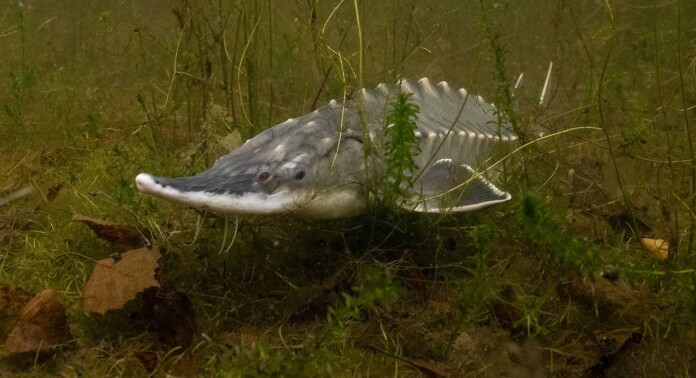The majestic sturgeon has made a comeback in Sweden after being driven to extinction in the early 20th century.
The Atlantic sturgeon has returned to the River Göta thanks to years of efforts to enhance water quality and habitat, along with financial backing from various organizations and institutions.
Recently, the Return of the Sturgeon initiative, led by the Swedish Anglers Association, successfully released 100 captive-bred juvenile Atlantic sturgeons into the Göta.
These juveniles were raised at a breeding facility in Born auf dem Darß, a village on Germany’s Baltic Sea coast, which is one of the initiative’s partners. They were released near Bohus Fortress in the city of Kungälv.
“This is a unique and incredibly exciting event,” said project leader Linnéa Jägrud, who oversees the Return of the Sturgeon initiative. “Reintroducing a regionally extinct species is very rare in Sweden. I can’t wait for the day when we can look at the river and say, ‘There are Atlantic sturgeons spawning below the surface here.’”
Like salmon, sturgeons spawn and grow in rivers before migrating to saltwater habitats such as estuaries and eventually the sea in adulthood. It’s anticipated that these sturgeons will eventually navigate to the Göta Estuary, but not before they develop the necessary salt tolerance to survive in ocean waters. The released fish were equipped with GPS tracking tags, allowing scientists to monitor their movements, including their routes to the ocean and their return locations for spawning.
The initiative received generous support from Rewilding Europe, which provided a €42,000 grant. The organization emphasized that sturgeons are both keystone and indicator species vital to achieving high levels of biodiversity in a river. They use their tapered heads to forage for insect larvae and crustaceans, naturally disturbing riverbeds in the process, which enhances oxygenation, redistributes organic matter, and creates spawning grounds for smaller fish.
According to Rewilding Europe, sturgeons also serve as hosts for species like lampreys and freshwater pearl mussels while preying on invasive species that could otherwise disrupt natural food webs. They require a connected network of habitats that provide optimal conditions for feeding, migrating, and spawning and are sensitive to fluctuations in water temperature, oxygen levels, and other environmental factors.
“The sturgeon can symbolize the overall health of the Göta River,” Jägrud stated. “It will serve as an ecological ambassador for the river.”
Jägrud expressed her desire to see several hundred individuals released into the Göta annually, as Atlantic sturgeon pups face a high mortality rate in the wild.
